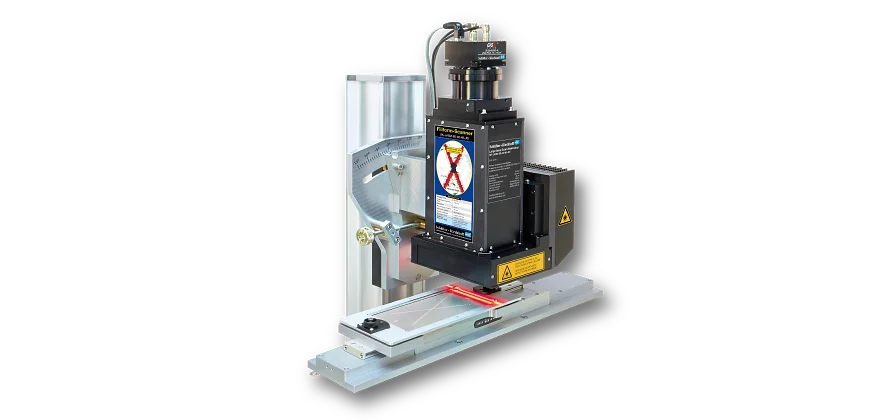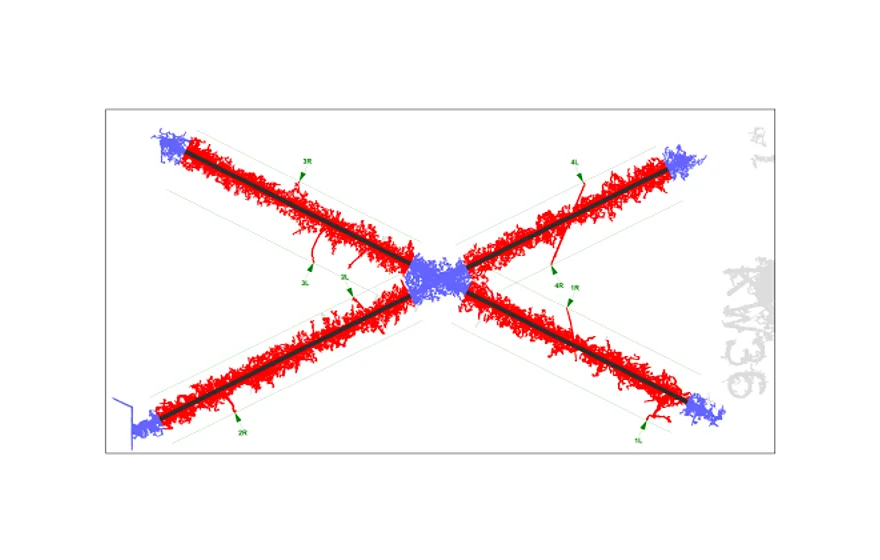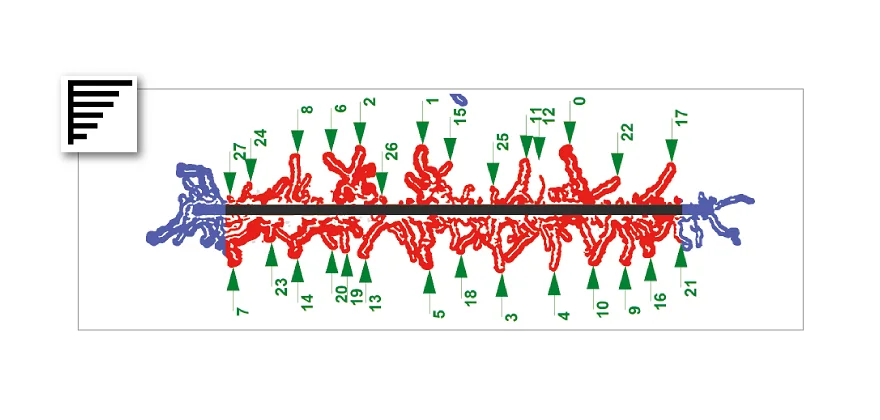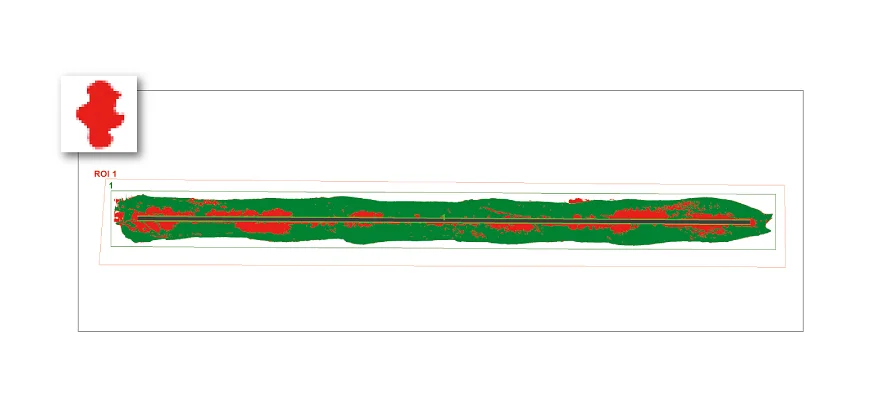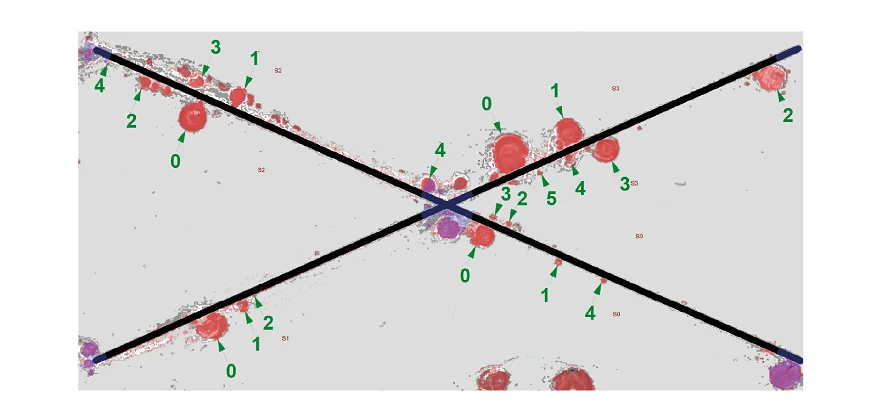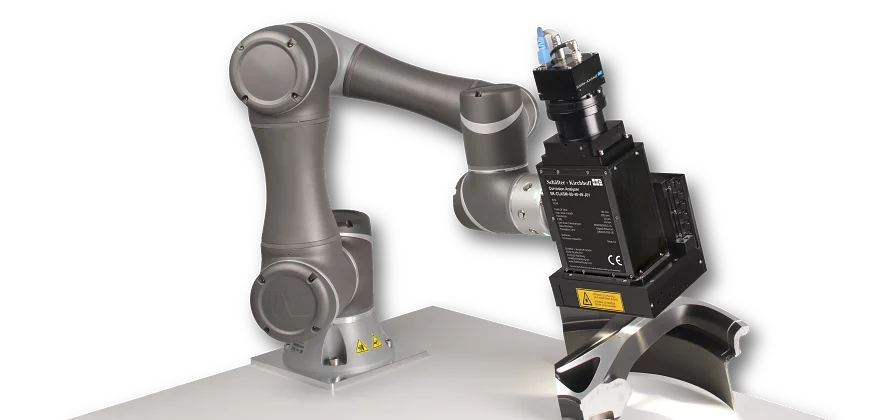Features
- NEW: With trainable machine learning algorithm!
- Monochrome scanner system
- Test panel size max. 100 mm x 200 mm
- Resolution 40 microns/pixel, 650 dpi
- Automatic and interactive measurement of corrosion phenomena, like area, width, filament length, red rust, delamination, multi-impact.
- Corrosion evaluations on corrosion test panels according to
- Filiform corrosion according to ISO21227-4
- Delamination and corrosion acc. to ISO 4628-8
- Cross-cut classification according to DIN EN ISO 2409
- Edge corrosion characteristic according to MBN 10494-6
- Blistering according to DIN EN ISO 4628-2
- Stone impact resistance test according to DIN EN ISO 20567-1
- Counting of all filaments, maximum length l, r
- Evaluation according to GSB, ACT II, Qualicoat
